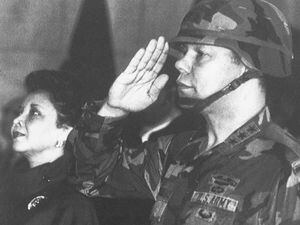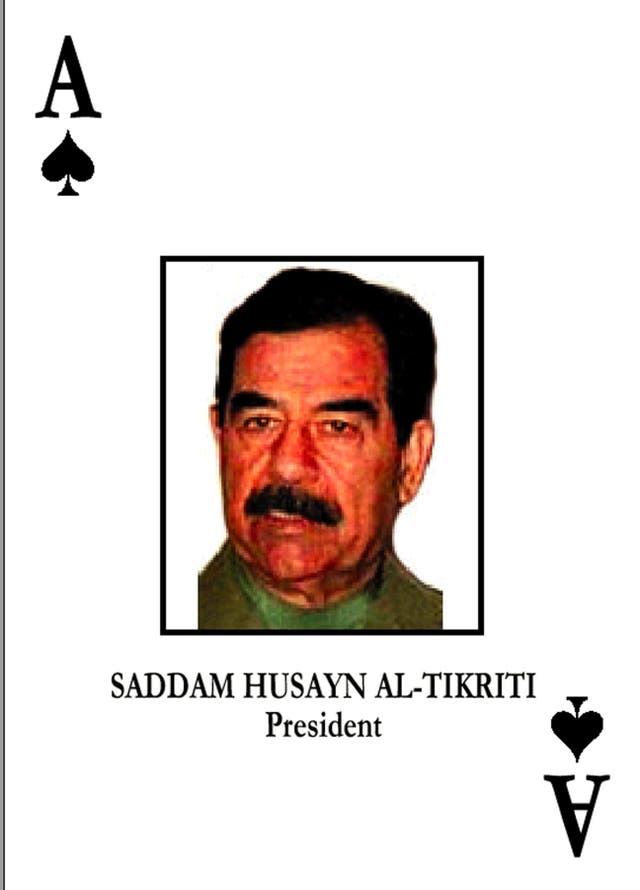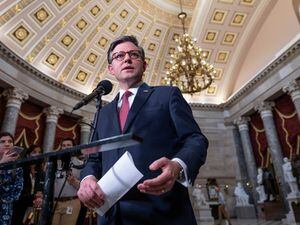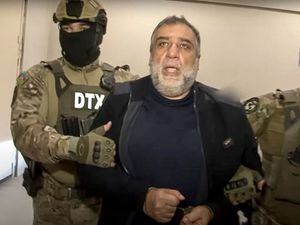Vietnam veteran rose through the ranks but faced criticism over Iraq war
Colin Powell, who served Democratic and Republican presidents and became secretary of state, has died with coronavirus aged 84.

Colin Powell, who served Democratic and Republican presidents in war and peace but whose sterling reputation was forever stained when he went before the UN and made faulty claims to justify the US war in Iraq, has died of Covid-19 complications aged 84.
A veteran of the Vietnam War, Mr Powell rose to the rank of four-star general and in 1989 became the first black chairman of the joint chiefs of staff.
In that role he oversaw the US invasion of Panama and later the US invasion of Kuwait to oust the Iraqi army in 1991.
But his legacy was forever marred when, in 2003, he went before the UN Security Council as secretary of state and made the case for US war against Iraq.

Iraq’s claims that it had no such weapons represented “a web of lies”, he told the world body.
In an announcement on social media, Mr Powell’s family said he had been fully vaccinated.
“We have lost a remarkable and loving husband, father and grandfather and a great American,” the family said.
Mr Powell had been treated at Walter Reed National Medical Centre in Bethesda, Maryland.

As then president George W. Bush’s first secretary of state, Mr Powell led a State Department that was dubious of the military and intelligence communities’ conviction that Saddam Hussein possessed or was developing weapons of mass destruction.
And yet, despite his reservations, he presented the administration’s case that Saddam indeed posed a major regional and global threat in a speech to the UN Security Council in the run-up to the war.
That speech, replete with his display of a vial of what he said could have been a biological weapon, was later derided as a low-point in Mr Powell’s career, although he had removed some elements that he deemed to have been based on poor intelligence assessments.
Mr Bush said on Monday that he and former first lady Laura Bush were “deeply saddened” by Mr Powell’s death.
“He was a great public servant” and “widely respected at home and abroad,” Mr Bush said.
“And most important, Colin was a family man and a friend.
“Laura and I send Alma and their children our sincere condolences as they remember the life of a great man.”

“Mine is the story of a black kid of no early promise from an immigrant family of limited means who was raised in the South Bronx,” he wrote in his 1995 autobiography My American Journey.
At City College, MR Powell discovered the ROTC. When he put on his first uniform, “I liked what I saw”, he wrote.
He joined the Army and in 1962 he was one of more than 16,000 “advisers” sent to South Vietnam by President John F. Kennedy.
A series of promotions led to the Pentagon and assignment as a military assistant to US secretary of defence Caspar Weinberger, who became his unofficial sponsor.
He later became commander of the Army’s Fifth Corps in Germany and later was national security assistant to President Ronald Reagan.
Mr Powell’s appearances at the United Nations as secretary of state, including his Iraq speech, were often accompanied by fond reminiscing of his childhood in the city, where he grew up the child of Jamaican immigrants who got one of his first jobs at the Pepsi-Cola bottling plant directly across the East River from the UN headquarters.

Mr Powell declined to get into a public spat with Belafonte, but made it known that he was not a fan and much preferred the Trinidadian calypso star the Mighty Sparrow.
Mr Powell maintained, in a 2012 interview, that on balance the US succeeded in Iraq.
“I think we had a lot of successes,” Mr Powell said.
“Iraq’s terrible dictator is gone.”





